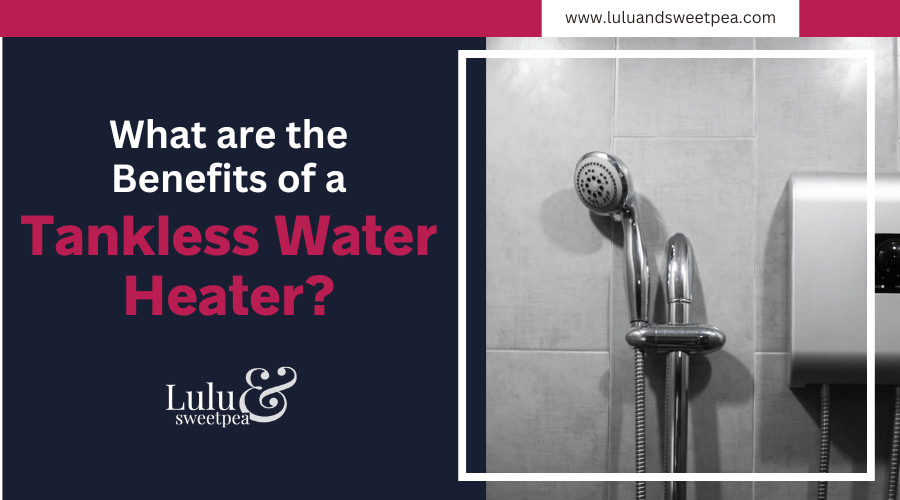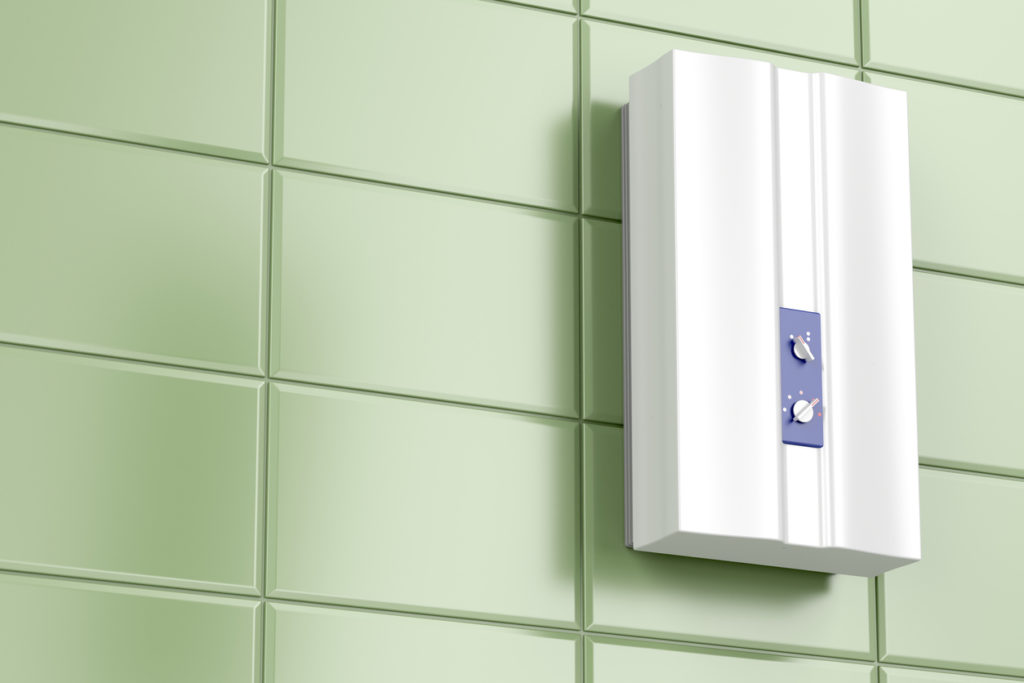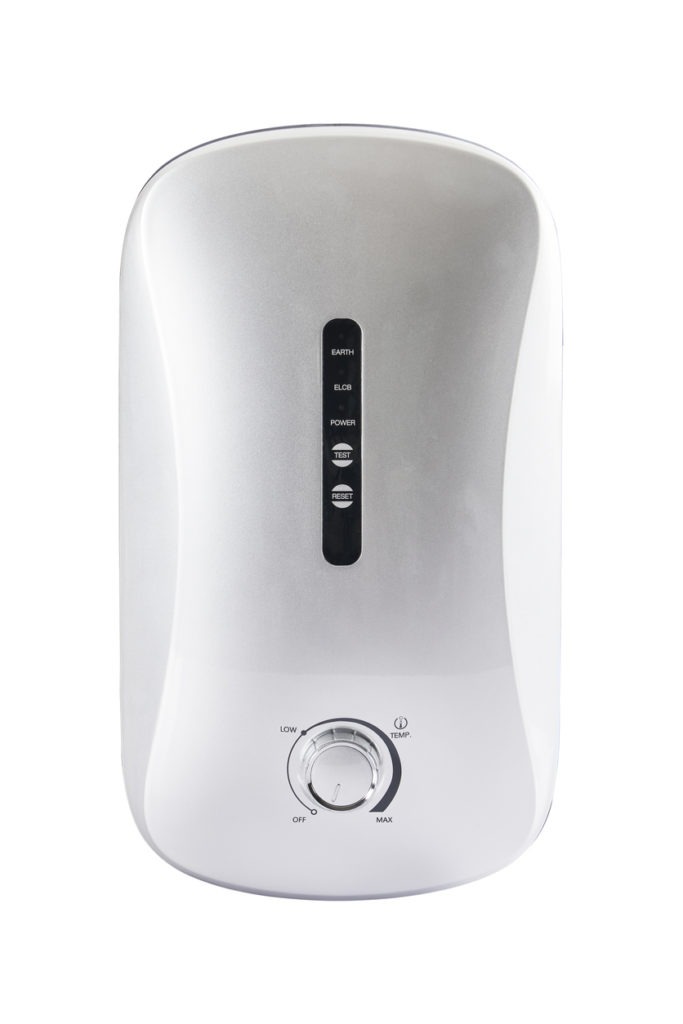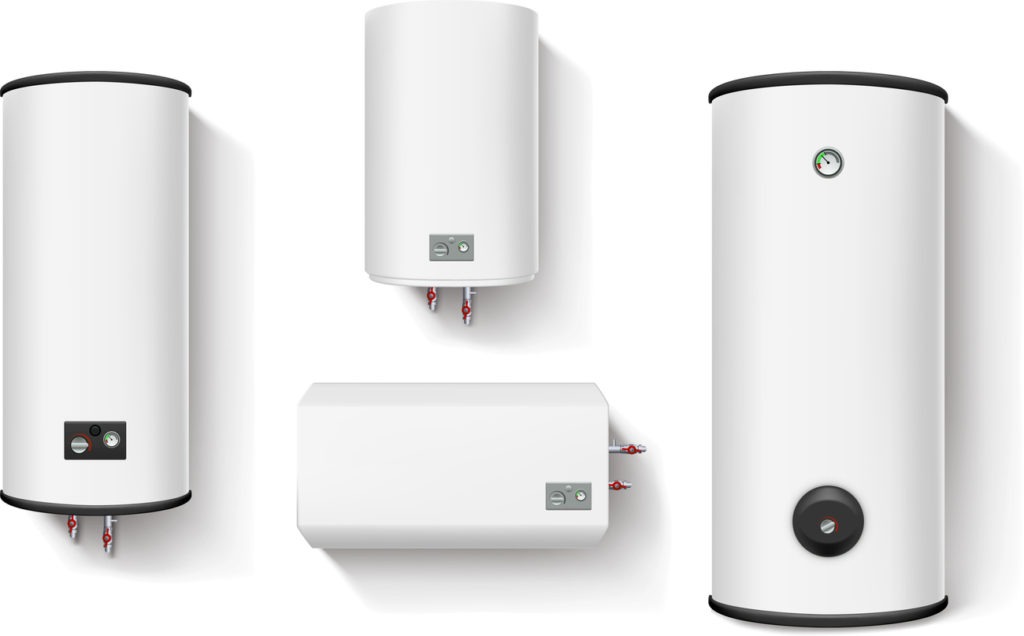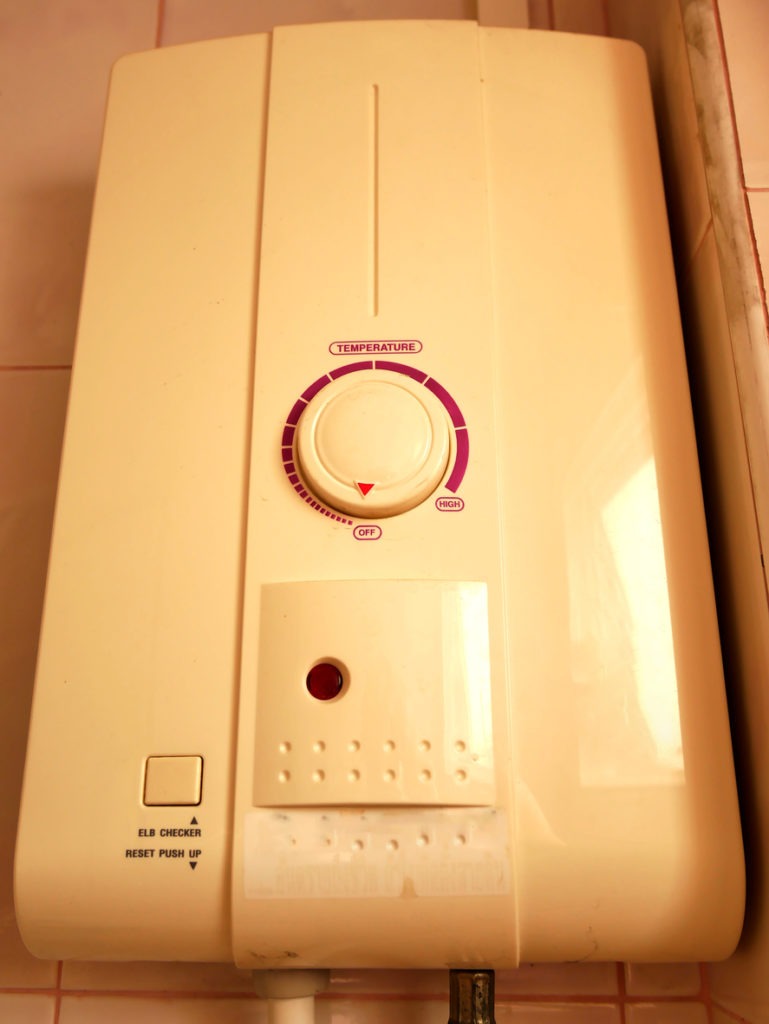A tankless water heater, also known as a demand-type water heater, is a freestanding appliance that heats the water in your home without the use of a large, pricey storage tank. Tankless water heaters warm your water instantaneously and without lag time, so you won’t have to wait around while shivering on chilly bathroom tiles while waiting for your shower to heat up.
Anytime a tap is opened, cold water flows through the tankless heater where it is swiftly and effectively heated using an electric element, a gas burner, or liquid propane before being sent to your faucet.
Tankless water heaters’ lifespan is another important point to consider. As opposed to a typical storage water heater’s lifespan of 10-15 years, it typically lasts more than 20 years.
Benefits of a Tankless Water Heater
Many homeowners may choose to get a tankless water heater as a result of its many benefits. Here are some of the top arguments in favor of installing an instant hot water system, from cost savings to the ability to have a relaxing shower or bath straight immediately.
1. Superb Energy Efficiency
By only turning on and heating water when it is needed, tankless water heaters save electricity. Tankless water heaters can reduce energy expenses for homes by 24–34% for those that use an average of 41 gallons of hot water per day. Like conventional water heaters, tankless water heaters do not experience the problem of heat loss. Traditional water heaters use more energy because they must continuously heat the water to keep it warm so that it will be available when needed. Heated water will eventually cool down while being kept.
2. Extended life
Customers who need to replace their existing storage water heater might find it useful to read about the longer lifespan of the newest tankless heaters available. Traditional storage heaters have an approximate ten-year lifespan; however, their tankless counterparts often have a lifespan that is twice as long. A longer-lasting heater may not be important to some consumers, especially those who intend to relocate within the next few years, but for homeowners intending to stay put for the long term, this could be the decisive factor.
3. You could earn a rebate
The federal government may provide you a sizable incentive when you buy a new tankless water heater. This is so that homeowners that choose clean, ecologically friendly appliance solutions can benefit from several government incentives. Most people who choose to install a tankless water heater can get a rebate of at least $300.
4. Smaller Size
The fact that tankless water heaters are only a foot tall and a foot wide is an extra benefit. In fact, they are so little that they frequently stick to the wall without any problems or issues. A tankless water heater might be mistaken for an air conditioning panel or a small circuit breaker due to its clever design.
Even the smallest, most compact dwellings and places can handle these devices thanks to their out-of-the-way design. And the extra room created by removing a big, cumbersome storage water heater justifies the modification.
5. Flooding is never an option
A tankless water heater doesn’t keep a lot of water in storage that could leak or explode at any time. As a result, your home will never flood due to one of these heaters. Additionally, unlike certain older, conventional types, tankless water heaters are not susceptible to exploding.
Overall, installing a tankless water heater in your house is a safer, wiser decision.
6. Environmentally friendly choice
A tankless water heater just uses the water you actually need; it doesn’t waste energy or produce surplus water. As a result, a decision is made that protects the environment and lessens the demand on the local water supply. Every household should be happy that they are reducing clean water and saving hundreds of dollars a year on utility cost.
7. Less time waiting to enjoy hot water
The days of waiting for water to heat up for hours on end are long gone. A tankless water heater provides direct heating as a feature of energy economy, allowing you to continuously consume hot water.
8. More safety
Families, especially those with young children, prioritize safety. You can reassure your consumers who may be worried about the security of a tankless water heater.
Traditional storage water heaters have a small chance of exploding due to overheating. Tankless devices have a substantially lower risk of overheating or explosion because they keep relatively little water. Additionally, if your consumer just experienced a water heater leak, they are aware of the harm a storage heater can do. They would gain from knowing that, because there is so much water stored in a tankless heater, leaks are much less likely to happen and, if they do, the water damage they produce is much smaller.
9. Durability
The normal operating life of an electric unit is about 20 to 25 years, so you should be able to get a lot of use out of this investment while also lowering your energy costs and delaying replacement until you are competent enough to handle the installation on your own. When difficulties arise down the line, the majority of homeowners can quickly learn how to maintain and operate tankless water heaters. If you need one more incentive to consider installing a tankless water heater, consider that most utility companies provide rebates for newly constructed homes that utilize alternative energy sources as well as incentives to move away from gas storage systems that are not at least Energy Star compliant (which most pre-1994 models are not).
10. Cost
Depending on the model placed in your home, one of these devices typically costs $400 to $1,000. This can be a bit expensive, but if done properly, it will undoubtedly pay off over time as electricity prices rise with each passing year. Purchasing an electric or propane tankless unit won’t save you much money if you live in an area where utilities aren’t very expensive because they won’t perform much better than any standard gas storage heating system. However, if you reside in a high-cost region, the savings will become apparent after a few months of use.
11. Hassle-Free Installation
Installation of a tankless water heater in your home doesn’t require the use of hot water pipes or gas lines. All you need to do is place it on a wall close to an electrical outlet, which can be done by anyone with a basic understanding of how plumbing and electrical circuits operate. Just make sure the unit is correctly grounded.
12. Space-Saving Design
Tankless heaters have been available for a long in Europe, but they aren’t yet widely used in the American market. Despite this, they have a number of advantages over traditional tank systems. Because tankless gas types may be installed anywhere there is electricity rather than needing the construction of massive storage tanks, they don’t take up any more space in your home or yard. You don’t have to worry about installing them inside your home producing an uncomfortable level of heat because they are so easy to relocate.
13. Low Temperatures
If you have observed that your shower is not as warm as it once was, it is most likely because the hot water tank system is gradually losing its capacity to keep heated water. As a result, your showers seem cooler and you consume more hot water per shower. Tankless systems avoid this issue by giving consumers access to hot water whenever they need it, which lowers the energy required to reheat cold or lukewarm water that is continuously wasting in conventional storage tanks.
14. Less maintenance
There must be ten years of service before maintenance is required. Unlike with a tank heater, there is no requirement to examine the anode rod. If you only make sure your filter is always clean and there isn’t any sediment accumulation in your incoming water supply, everything should be OK for a long time.
One thing to keep in mind is that if your tankless water heater does require maintenance, you will need to be aware of how deep your well pump is. You should think about switching to a tankless unit if your water heater has a tank and you are heating it with electricity. When the water is heated for you, a lot of it will be wasted because a tanked water heater typically boils the water to about 140 degrees (Fahrenheit use). With minimal to no energy loss, a tankless unit will heat the water to the temperature you require.
Important Factors to Bear in Mind When Buying a Tankless Water Heater
Having access to hot water whenever you need it is the primary goal of a water heater. However, a traditional tank-based water heater could find it challenging to meet your needs due to increased usage and the demand for continual hot water in a busy family. A modern tankless water heater can help in this situation thanks to its improved technology and effective heat management for continuous hot water use.
For practically all customers who have purchased a water heater, tankless models are an excellent choice. Before completing your final purchase, there are a few requirements that must be taken into account.
1. Select from the Different Types of Water Heaters
Your priorities will solely determine whether you choose a gas or electric water heater. A gas-powered tankless water heater can be more advantageous for you if you place a higher value on finances than on efficiency. While an electric tankless water heater will work for you if you support energy efficiency.
2. Consider Your Climate
One of the most crucial considerations when selecting the ideal tankless water heater is the climate. The ability of your water heater to produce energy can be significantly impacted by the temperature outside your home.
To produce the necessary quantity of heat for heating the water, the water heater must first determine how cold the incoming water is. Because of this, you should make sure your water heater can heat water according to the temperature of your surroundings without having exceptionally high operating costs.
3. Determine the Size of the Heater Based on Your Usage
Your need for hot water is one of the most important factors to consider before buying a water heater because it will affect the size of the unit. The usual daily water usage for a household is 64 gallons. This demonstrates why it’s crucial to understand your water needs before buying to avoid making an inadequate choice. Save yourself the hassle of claiming your returns and keeping track of your needs.
4. Inquire About the Flow Rate (GPM – Gallons per Minute)
When buying a water heater, you should be aware of your hot water needs to make sure it will be able to meet your needs. You can compute the average flow rate of the appliances or tasks that will be completed concurrently to keep track of your usage.
In the winter, for instance, using the kitchen sink, doing laundry, and taking a shower all at once can use a lot of hot water.
5. Factor in the Maintenance Requirements
To ensure that your relatively less expensive purchase won’t put a strain on your finances in the long term, maintenance is a crucial component of water heaters and should be given significant consideration when making a purchase.
6. Perform a Performance Comparison Analysis Before Deciding on Your Type of Heater
You will need to decide between an electric and a gas heater when selecting a tankless water heater. Although they both can deliver hot water, their methods of operation and degrees of productivity are very dissimilar.
A gas heater is less energy efficient than an electric tankless water heater, but it is more cost-effective because of its low operating expenses. You must decide if you want your purchase to be economical or energy-efficient at this point.
Conclusion
A tankless water heater is clearly superior to other styles of water heaters due to its many advantages. The reduction in the amount of heat and byproduct generation justifies upgrading your standard tank water heating equipment, despite the higher electrical costs. Couples who have children in their houses benefit from the extra benefit of improved security that comes with a tankless water heater. A tankless water heater easily beats all other types when it comes to security benefits.
